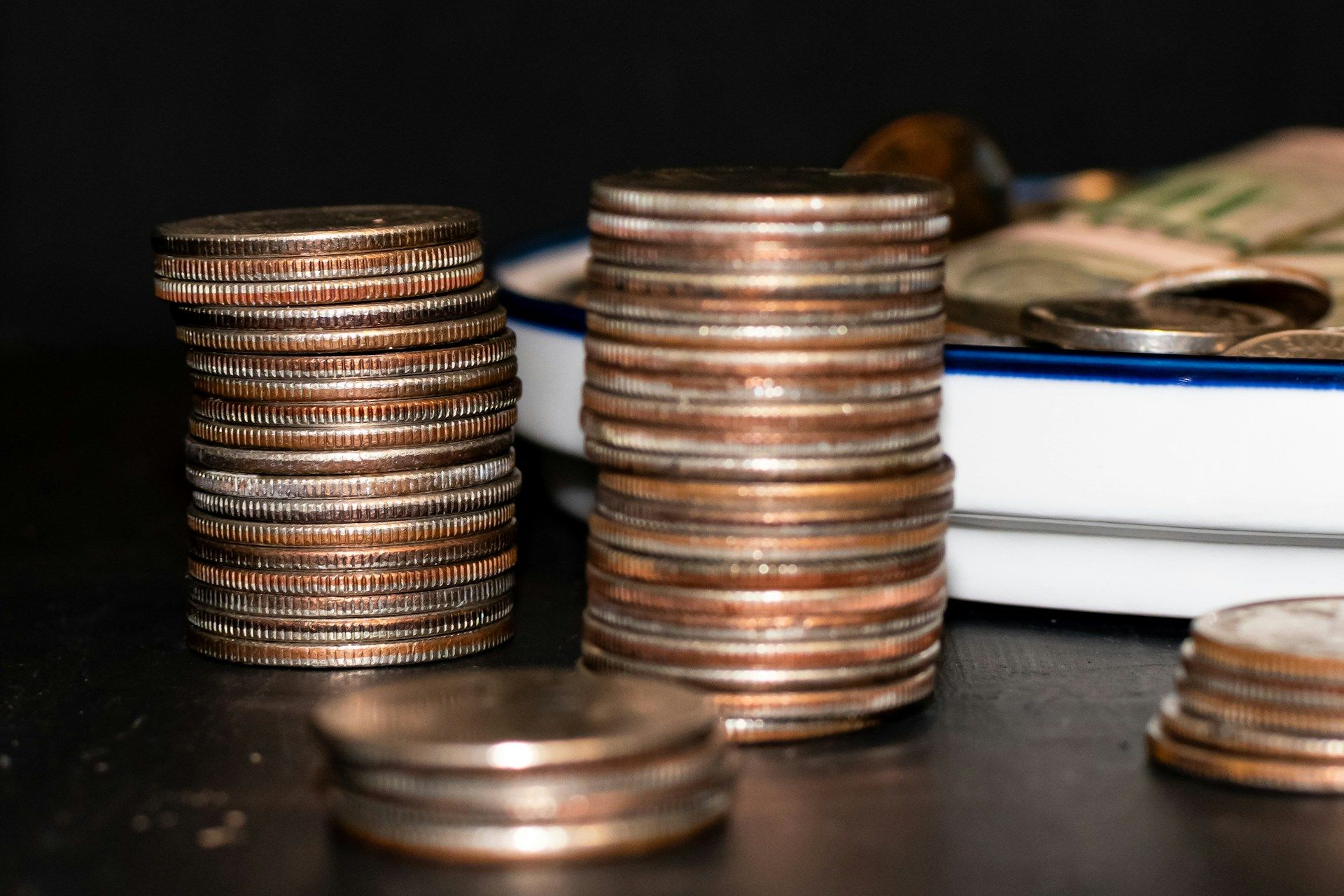11 Reasons You’re Not Losing Weight On Ozempic
Why am I not losing weight on Ozempic? Find out what's sabotaging your weight loss journey and get tips to make Ozempic work better for you!

Bariendo Team
Team @ Bariendo
Why am I not losing weight on Ozempic? The answer is not a one-size-fits-all. Not getting the results you were expecting is frustrating, but the reality is that weight loss with Ozempic is a gradual process.
Ozempic works best when combined with healthy lifestyle changes, such as a balanced diet and regular exercise. Variables like dosage, consistency and underlying health conditions can all impact how quickly you see results with Ozempic.
There could be several reasons why you’re not losing weight with Ozempic, but the good news is, many of them are within your control. Below, we’ll explore 11 possible reasons why Ozempic isn’t working for you and what you can do to maximize your results.
Why is Ozempic Not Working for Me?
Ozempic is a form of semaglutide, a GLP-1 medication primarily prescribed to manage type 2 diabetes. The non-diabetic, weight loss-focused version of Ozempic is called Wegovy. Those who take it often experience weight loss because the drug mimics a naturally occurring hormone that slows digestion and tells your brain that your stomach is full.
So, how much weight can you realistically expect to lose on Ozempic? Studies have shown that these medications can result in a weight loss of 15% of your body weight or more. Despite these promising results, some users don’t experience weight loss as quickly as expected.
This can be frustrating, but it’s important to know that successful weight loss with medication requires healthy lifestyle changes and medical supervision. Let’s explore some common reasons why you may not be experiencing the same results and how you can overcome these challenges.
1. You May Be Expecting Dramatic Results Too Quickly
If you’ve just started taking Ozempic, it’s important to be realistic with your expectations. Typically, your doctor will start you at a lower dose to minimize the chances of side effects. You’ll likely begin with a dose of 0.25 mg per week for the first four weeks, followed by an increase to 0.5 mg per week for the next four weeks.
After that, your doctor may choose to increase the dose to 1 or 2 mg per week based on your response and tolerance. 2 mg per week is considered the maximum dose. This gradual increase can take around three months.
Patience is key. Even if you’re not at the maintenance dose yet, the medication is doing what it should! Over time, you will begin to feel less hungry and have fewer cravings, especially for high-fat foods. You’ll eat less, and as a result, you’ll lose weight.
2. You May Need a Higher Dose
When you first start taking Ozempic, the likelihood and intensity of certain side effects, like nausea and diarrhea, are high. These side effects tend to decrease or go away as your body adjusts to the medication.
To minimize the likelihood and intensity of these side effects, doctors initially prescribe a smaller dose of Ozempic and gradually increase to a higher dose. This cautious approach gives your body time to acclimate to the drug.
That being said, people who take higher doses of Ozempic tend to lose more weight faster. Once again, patience is key. As your doctor increases the dosage of your medication, you should start to lose weight more quickly.
3. You May Need to Exercise More
Ozempic works most effectively when combined with healthy lifestyle changes, including regular exercise. While the medication can help reduce your appetite and control blood sugar levels, exercise helps you burn more calories and boosts your metabolism.
Exercise is also necessary for sustained weight loss, overall health, and well-being. Aim for a mix of aerobic exercise, like walking, swimming, or cycling, and resistance training to build muscle, which can enhance your metabolic rate.
If you don’t currently have an exercise routine, start with small, manageable changes. Even a short, daily walk can make a significant difference. As your body adapts, gradually increase the intensity and duration of your workouts. Choose activities you enjoy to make exercise a sustainable part of your daily routine.
4. You May Not Be Adjusting Your Diet Enough
Ozempic isn’t a magic pill that causes you to lose weight without improving your eating habits. To lose weight effectively, you still need to maintain a calorie deficit, meaning you consume fewer calories than your body burns.
Limiting your intake of refined carbohydrates, sugar, red meat, and alcohol can also make a huge difference. Focus on incorporating more whole foods, like fruits, vegetables, lean proteins, and whole grains.
Tracking your food intake can help you understand your eating patterns and identify areas that need improvement. Consider using a food diary or app to log your meals and snacks, provide insights into your calorie consumption, and help you make more informed choices.
The goal is to create sustainable, healthy eating habits that support your weight loss journey with Ozempic now and in the future. Starting with small, gradual changes can lead to significant and lasting results.
5. You May Need to Eat More High-Quality Protein and Fiber
When it comes to optimizing your diet on Ozempic, high-quality protein and fiber deserve special mention. They can help you feel fuller sooner, so you eat less and lose more weight faster as a result.
Protein is also essential for maintaining healthy blood sugar levels. It’s also vital for building and repairing tissues. Your body needs protein to build muscle, which increases your metabolism, allowing you to burn more calories even at rest.
Fiber assists with digestion and helps regulate blood sugar levels. High-fiber foods also help to keep you regular, which is vital for losing weight. They also help you feel satiated and reduce the likelihood of overeating.
Make healthy swaps to incorporate more lean proteins and fiber-rich foods into your diet. These simple changes can support weight loss with Ozempic and improve your results.
6. You May Have Hit a Plateau
Weight loss plateaus are common, even with Ozempic. They mean that your body has adapted to the lifestyle changes you’ve made, causing your weight loss to slow down or stop.
According to our founder, Christopher Thompson, MD, “People lose weight in a calorie deficit, meaning they consume fewer calories than they burn over time. When the body doesn’t get as much food as it used to, the brain perceives the loss of calories as a threat and shuts down the physiological processes that cause weight loss.”
So, if you’ve been taking Ozempic for a while and it’s no longer working, consider taking a hard look at your lifestyle. Making some adjustments to your routine, like adding more strength training, could help you break through the plateau.
Try to vary your workouts to keep your body challenged and prevent adaptation. Consider adding high-intensity interval training (HIIT), a new type of cardio, or a new sport to add variation and reignite your weight loss.
7. You May Not Be Taking Ozempic As Prescribed
Just like any other medication, Ozempic isn’t as effective if you’re not taking it as prescribed. Skipping doses and not taking the medication consistently will impact your results and make it harder to predict how your body will respond.
Be sure that you’re following your doctor’s instructions precisely. Set reminders to help you remember to take the medication on schedule. Consistency is key to maintaining steady levels of the drug needed to have the desired effects on your appetite and blood sugar levels.
If you have missed doses of your medication, talk to your doctor about the best way to get back on track. They can help you adjust your schedule and ensure you get the most benefit from the medication.
8. You May Be Too Stressed Out
Stress significantly affects your weight loss success, even when taking Ozempic. When you’re stressed out, your body releases the stress hormone cortisol. Studies show that when cortisol levels are chronically high, it can lead to the accumulation of belly fat and make weight loss more difficult.
Chronic stress often triggers emotional eating and poor dietary choices. In times of stress, people often go for sugary, salty, or high-fat foods that can impede weight loss. Stress can also disrupt your sleep, lower your energy levels, and reduce your motivation to exercise.
Finding effective ways to manage your stress is vital to successful weight loss. Meditation, yoga, deep breathing exercises, and regular physical activity can all help to reduce stress levels. Maintaining a balanced work-life routine is also essential.
If stress is a significant issue in your life, consider seeking support from a mental health professional. They can help you explore tools and strategies to manage stress more effectively.
9. You May Not Be Getting Enough Sleep
Getting enough sleep isn’t just about having enough energy to work out. Research shows that sleep deprivation causes hormonal changes that can trigger cravings, particularly for high-calorie, high-carbohydrate foods. This can impact your calorie intake and expenditure throughout the day.
If you’re not getting seven to eight hours of quality sleep each night, make it a priority. Create a consistent sleep schedule and establish a relaxing bedtime routine to improve sleep quality. Avoid caffeine and other stimulants before bed so you can fall asleep more easily.
By prioritizing sleep, you’ll have more energy for exercise, recover more quickly after a workout, and support healthy hormone balance. This sets the stage for more successful weight loss and better outcomes with Ozempic.
10. You May Have an Underlying Health Issue
Certain underlying health conditions can hinder weight loss, even with medications like Ozempic. Hypothyroidism, polycystic ovary syndrome (PCOS), and other hormone-related conditions can make it especially challenging to lose weight.
If you have an underlying condition you haven’t disclosed to your doctor, keeping them in the loop is important. They can evaluate how your condition may be influencing your results with Ozempic and make adjustments to help you meet your weight loss goals.
11. You May Need a Different Treatment
The reality is Ozempic doesn’t work for everyone. Every body responds differently to medications, and what works for one person may not be as effective for another.
If you’ve diligently adjusted your lifestyle, followed the prescribed regimen, and addressed any underlying health concerns, it may be time to talk to your doctor about alternative solutions.
Some highly effective alternatives include ESG Stomach Tightening and Gastric Balloon. These one-and-done, non-surgical solutions make weight loss easier, leave no scars, and allow you to resume your regular routine in as little as 2-3 days.
Don’t hesitate to communicate openly with our providers about your progress, concerns, and the options available to you. We’re here to help you find the best way to lose weight and ensure that you receive personalized support along the way.
How Long Does It Take to Start Losing Weight On Ozempic?
The timeline for experiencing weight loss on Ozempic varies from person to person. You may begin to experience gradual weight loss in the first few weeks of treatment, or it may require a few months to see significant results.
That being said, healthy weight loss is a gradual process, so don’t try to rush it. Staying consistent with your regimen and making the necessary lifestyle changes will help to ensure sustainable weight loss over time.
How Can I Speed Up Weight Loss On Ozempic?
If you’re looking to speed up your weight loss on Ozempic, ensure that you’ve made the necessary changes to your diet and that you’re taking the medication exactly as prescribed.
Pay special attention to your calorie intake and make sure you’re maintaining a calorie deficit each day. Gradually increase the length and intensity of your workouts to build muscle and boost your metabolism.
Prioritize sleep and incorporate stress-reducing activities into your daily routine. Remember, sustainable weight loss requires consistency, long-term commitment, and dedication. Faster isn’t always better.
Is It Possible to Not Lose Weight On Ozempic?
While Ozempic has been shown to be effective in promoting weight loss in many individuals, it may not work for some people. If you do not see results despite your best efforts, talk to our doctors about your concerns.
Maximizing Your Weight Loss with Ozempic
Embarking on a weight loss journey with Ozempic is both exciting and challenging. Understanding why you may not be losing weight on Ozempic can help you implement actionable strategies to maximize your success.
Remember to stay patient and consistent, and be proactive in communicating with our providers about your successes and challenges along the way. We are THE experts in weight loss, here to help you find the best path to meet your weight loss goals.

